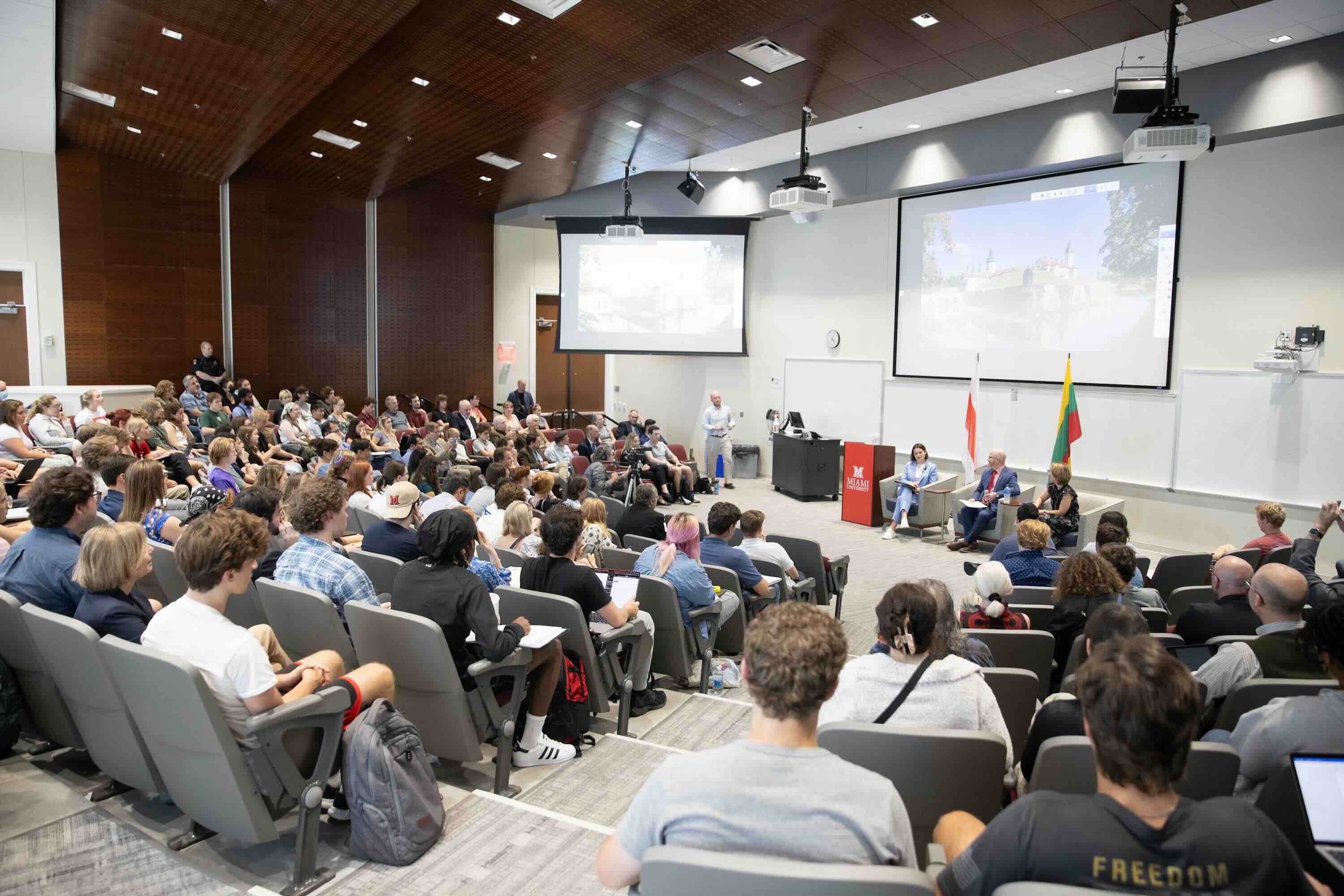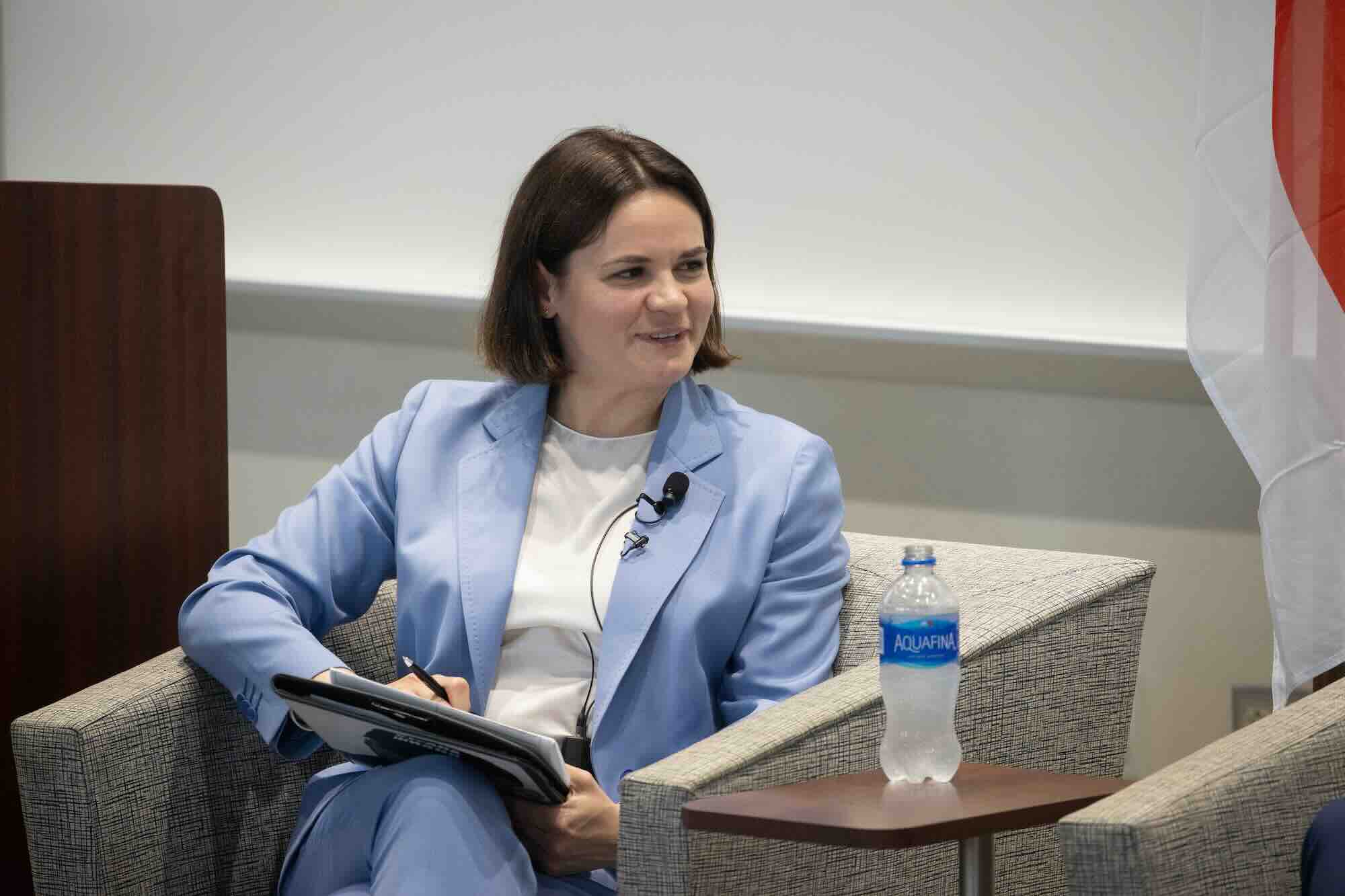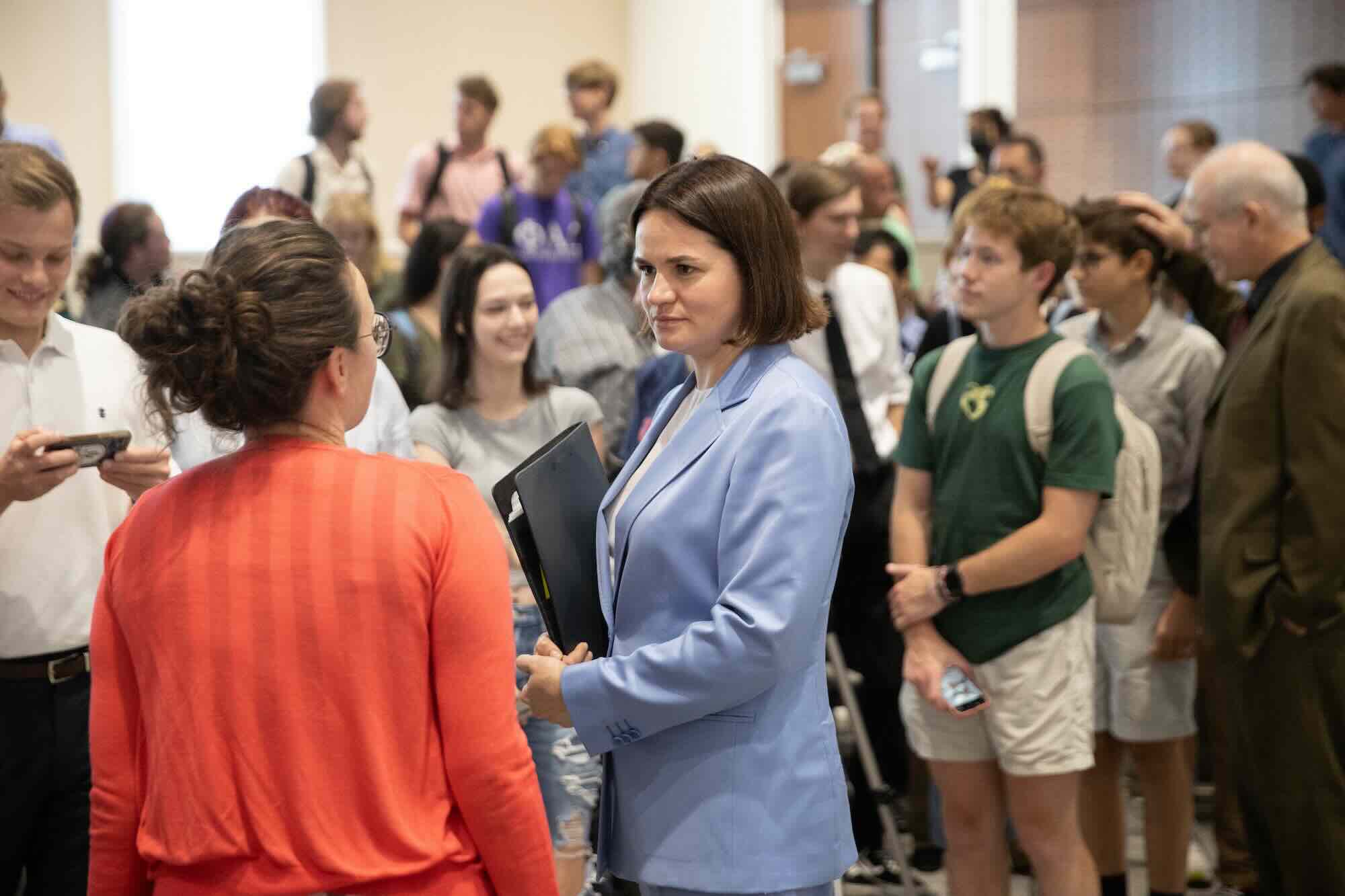Belarus opposition leader engages with students at the Annual Havighurst Lecture about the importance of fighting for democracy
Sviatlana Tsikhaniouskaya spoke to students about the protests for democracy in her home country and how she is working with global leaders to make this a reality.

Belarus opposition leader engages with students at the Annual Havighurst Lecture about the importance of fighting for democracy
In the last three years, Sviatlana Tsikhanouskaya has gone from being a stay-at-home mother of two to a political pioneer.
In 2020, Tsikhanouskaya’s husband, Sergei Tikhanovsky, was sent to prison for challenging Alexander Lukashenko, who has held the presidency of Belarus since 1994. Tsikhanouskaya challenged Lukashenko in her husband’s place. When Lukashenko declared himself the victor after massive voter fraud, Tsikhanouskaya became the face of the country’s democratic revolution.
Shortly thereafter, she was exiled to neighboring Lithuania. Tsikhanouskaya has continued her work, fighting for democracy by meeting with various heads of state, including President Biden.
 On Friday, Sept. 22, she spoke at the Annual Havighurst Lecture, held in Shideler Hall. The lecture was sponsored by the Havighurst Center for Russian and Post-Soviet Studies, an on-campus center dedicated to fostering discussions and providing programming related to Russia and eastern Europe.
On Friday, Sept. 22, she spoke at the Annual Havighurst Lecture, held in Shideler Hall. The lecture was sponsored by the Havighurst Center for Russian and Post-Soviet Studies, an on-campus center dedicated to fostering discussions and providing programming related to Russia and eastern Europe.
The Havighurst Center has brought many important speakers to campus, including Nobel Peace Prize Laureate Dmitry Muratov and former Lithuanian President Dalia Grybauskaite.
The lecture was co-sponsored by The Menard Family Center for Democracy as a part of their “Citizenship and Democracy Week.”
During her speech, Tsikhanouskaya discussed everything from raising a child with disabilities to fighting for her country’s democratic freedoms with a husband still in prison.
“My husband, Sergei, remains in jail,” said Tsikhanouskaya. “He was sentenced to 19 and a half years. My children haven’t seen their daddy in three years. But I can’t stop doing my job.”
She also told the audience the lessons that she has learned from the last three years: resilience and to never stop caring.
“They get used to injustice, tyranny, and they stop caring in order to survive,” said Tsikhanouskaya. “This [lack of] empathy is our main enemy.”
Stephen Norris, Walter E. Havighurst Professor of History and director of the Havighurst Center, and Neringa Klumbyte, professor of Anthropology and director of the Lithuania Program at the Havighurst Center, held a Q&A panel after the speech, which was well attended by an audience of students and other community members, including majors in Diplomacy and Global Politics, Political Science, and REEES (Russian, East European and Eurasian Studies).
The questions posed to Tsikhanouskaya sought to understand Belarus' role in the current war between Russia and Ukraine since Belarus is geographically in the center of the two countries. Tsikhanouskaya explained that Ukrainians are fighting for all of those in Europe and that the war in Ukraine won't be over until Belarus is free.
“Victory in the case of Belarus is saving our independence, because now we see how Russia is segregating our country,” Tsikhanouskaya said.
Tsikhanouskaya took a handful of questions from the crowd of Miami students and professors. Senior Meredith Perkins, a double major in Diplomacy and Global Politics and Creative Writing, asked Tsikhanouskaya if there were any political leaders or role models that have inspired her career as she navigates leading Belarus through this difficult time. Tsikhanouskaya answered that she could not name one person because within the past three years she has met many European leaders of different countries.
“From everyone you take something special,” Tsikhanouskaya said.
To end the panel, Norris asked Tsikhanouskaya what steps ordinary people in Western countries, such as the United States, can take to support Belarus.
 Sviatlana Tsikhanouskaya talks with individual members
Sviatlana Tsikhanouskaya talks with individual members
of the audience after giving the 2023 Havighurst Lecture.
Tsikhanouskaya said citizens can donate to foundations and initiatives such as The Belarusian Association of Journalists, help educate others on the severity of oppression, donate to campaigns, and send letters of support to political Belarusian prisoners.
“We should keep our humanity, our dignity, and our faith alive every day,” Tsikhanouskaya said in her concluding address. “We should not get used to injustice. Today the world faces so many problems. We need leaders to inspire people to set an example of not giving up. I am sure many of you will become such leaders. We hope that the United States will lead the way in bringing about a better world as you always did.”
Anyone wishing to collaborate or gain further information can contact office@tsikhanouskaya.org.